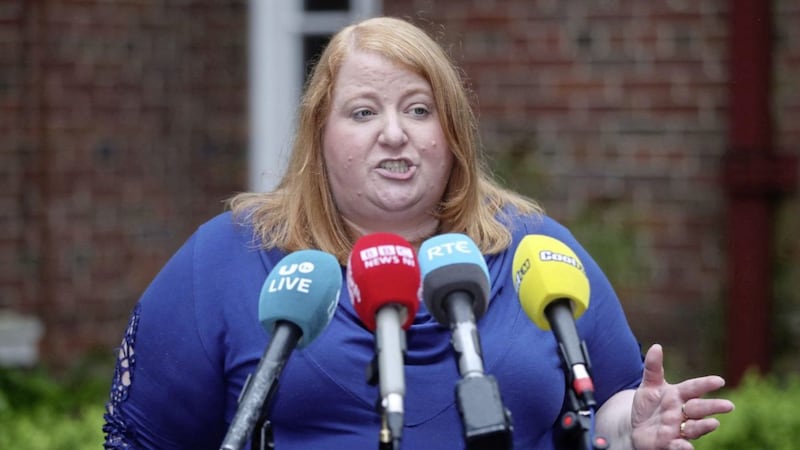Normalisation of electoral pacts could be the long-term legacy of this election, moving Northern Ireland into a three-bloc if not a three-party system.
The UUP’s withdrawal from North Belfast has been so badly handled it amounts to withdrawal everywhere; the pro-Remain pact is de-facto nationalist in the absence of Alliance; and Alliance is now alone in rejecting pacts entirely.
Pacts are only discussed in Westminster elections in Northern Ireland, due to first past the post. But the UUP and SDLP have damaged their distinctness so badly it will have to harm their chances in council and Stormont contests. Unionist and nationalist voters will feel they have less choice, which invariably reduces turnout and transfers under proportional representation.
Much of the growth in the total unionist vote and fall in the total nationalist vote over the past decade was simply down to the larger number of competitive unionist parties. That era is clearly over, while nationalists must await the proper arrival of southern parties to have a more competitive field. In the meantime, it looks like we are heading for a DUP-Sinn Féin-Alliance system for the foreseeable future.
**
The Green Party would disagree the Remain pact is de facto nationalist, being its most selfless participant. Brexit has arrived at precisely the moment the Greens have grown large enough to affect results yet are still not large enough to expect others to stand aside for them. So they have stood aside for everyone else, everywhere. The long-term impact of this must be to reduce voter choice in the centrist bloc, leading to the same kind of stagnation pacts are bringing to unionism and nationalism.
**
With another hung parliament now the bookie’s favourite, the serious prospect arises of the DUP holding the balance of power again or at least being a significant player in Westminster arithmetic. This is a mixed blessing for the party’s campaign, as it can no longer waffle about opposing Boris Johnson’s Brexit from the backbenches. It must say whether it would put Johnson back in office, along with his deal and dubious promises, or permit the only plausible alternative of Labour’s Jeremy Corbyn entering Number 10 instead, in coalition with Scottish nationalists promised a second independence referendum. The DUP is between the devil and a sea border, as Ian Paisley snr might have put it.
**
The elephant in the room with Brexit is not a united Ireland - something that has always been widely discussed, despite bizarre claims to the contrary. Organised crime, north and south, is what people are blanking when they consider the crucial Brexit issues of border inspections, infrastructure and security, all of which would be transformed without our political and social indulgence of gangsterism.
It has taken years of attacks on Quinn Industrial Holdings for action to finally be demanded.
Political leaders in Dublin have conceded the border is lawless, extra gardai are being deployed and new all-Ireland policing powers are in the frame.
While this is entirely warranted by the Quinn attacks alone, it is a fascinating contrast with Brexit, where the need for a crackdown on criminals along the border is still considered too provocative to mention.
**
Brexit also lurks in the background of a growing row in the Republic over immigration. Pressure on the ‘direct provision’ system of housing asylum seekers has drawn Taoiseach Leo Varadkar into alarming claims about Ireland being targeted by Albanian and Georgian people-trafficking. Protests against direct provision centres are now connected to the lawlessness on the border, following an attack on a Sinn Fein TD. Irish links to people-trafficking through England have brought matters to the British public’s attention.
Under the Common Travel Area the UK and Ireland run a combined external frontier, meaning movement of people has never become a contentious Brexit issue. That could change quickly if the Republic is perceived as having immigration problems.
**
The latest report from the Independent Reporting Commission, the panel set up under the Fresh Start agreement to monitor paramilitarism, makes no mention of the INLA or the IRA. The INLA is currently the subject of a major police investigation and Fresh Start followed a PSNI assessment of the IRA.
Challenged on the omissions, panel member Monica McWilliams said the Commission bases its reports on “reports provided to us by the PSNI”, these didn’t mention the IRA or the INLA and if “those in power” want to change the focus it is up to the secretary of state.
If that is how the Commission operates, how can it possibly be described as independent?
**
Sinn Fein former finance minister Máirtín Ó Muilleoir is reportedly leaving politics, taking with him much of his party’s connection to the Renewable Heat Incentive scheme.
When Ó Muilleoir set up the RHI inquiry in 2017 he said it would take six months, a prediction that inquiry chair Sir Patrick Coghlin seems determined to frustrate.
Another of Ó Muilleoir’s predictions is faring better.
On the day Stormont collapsed, he reportedly turned to an adviser and said “this place will be down for five years”.









